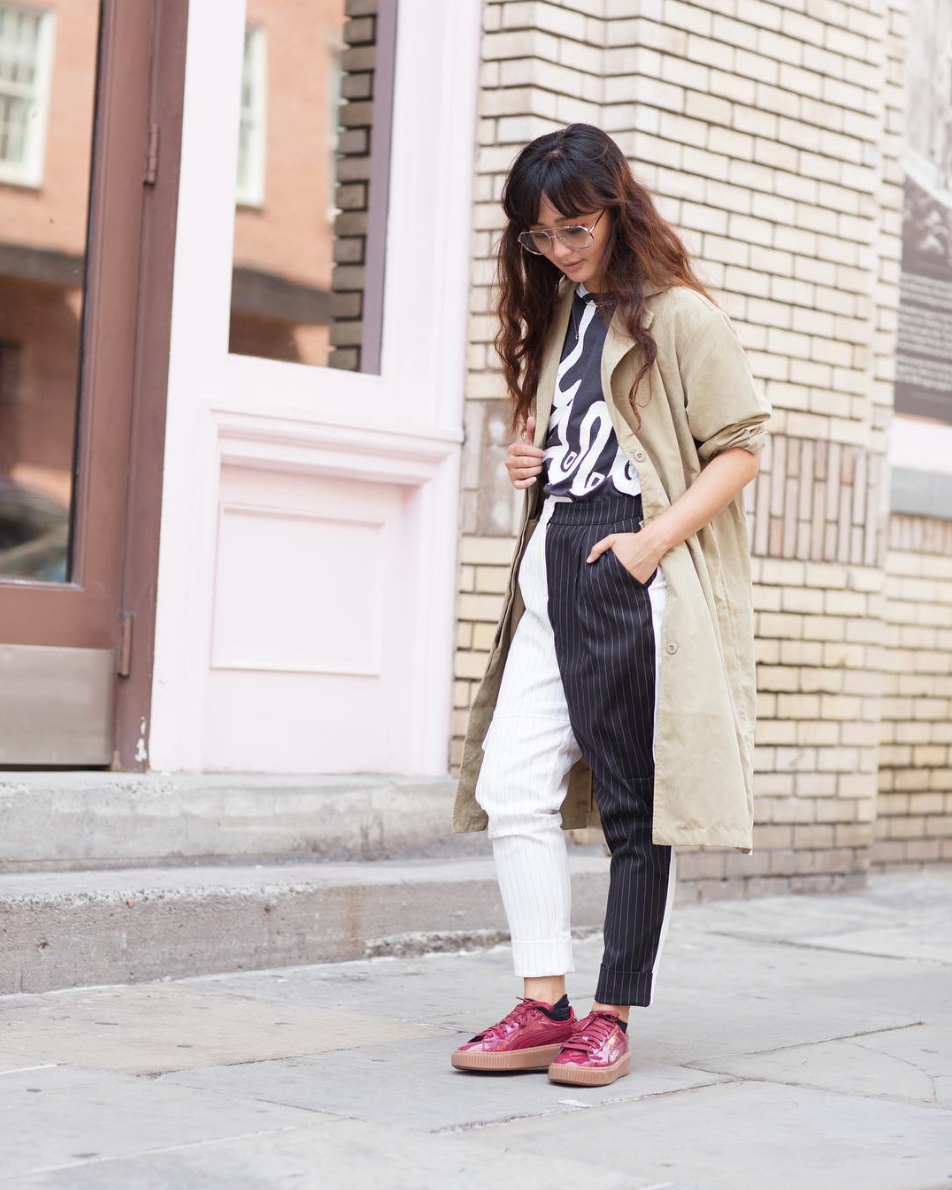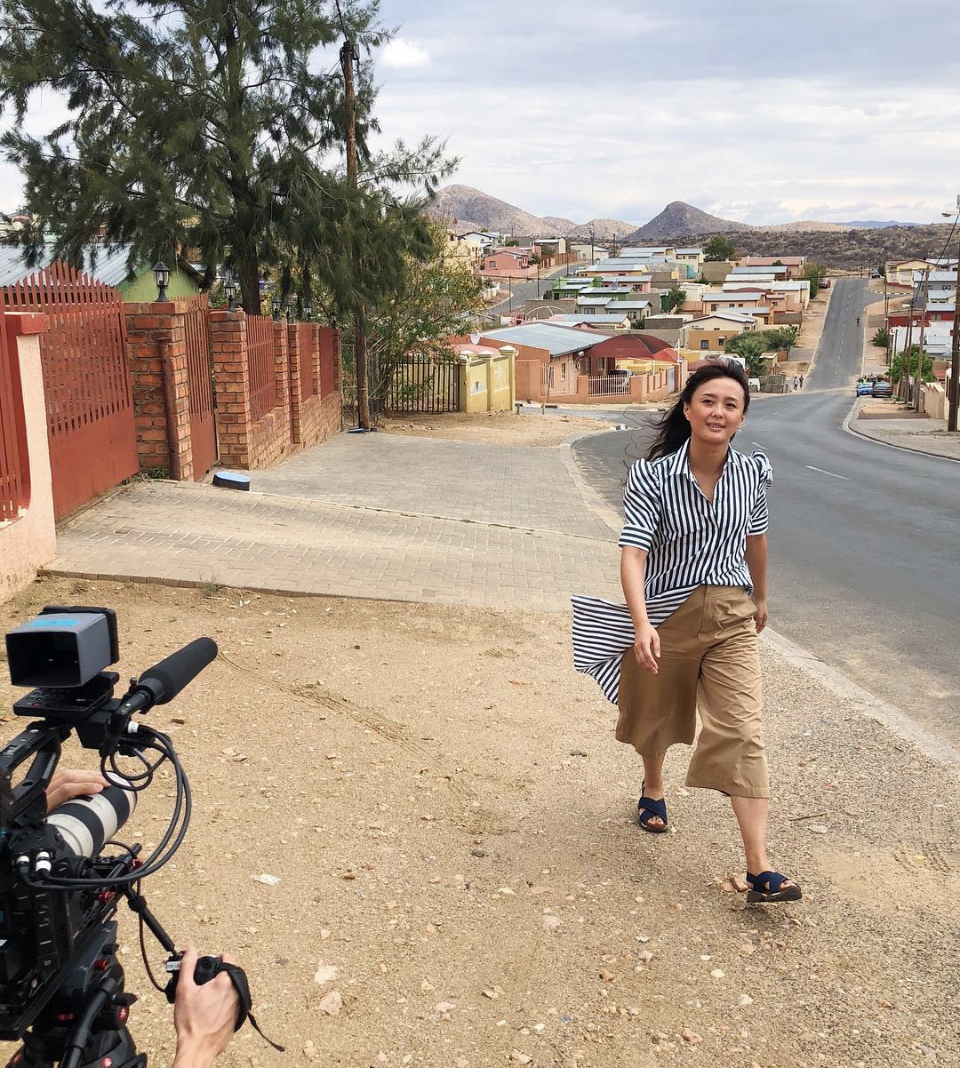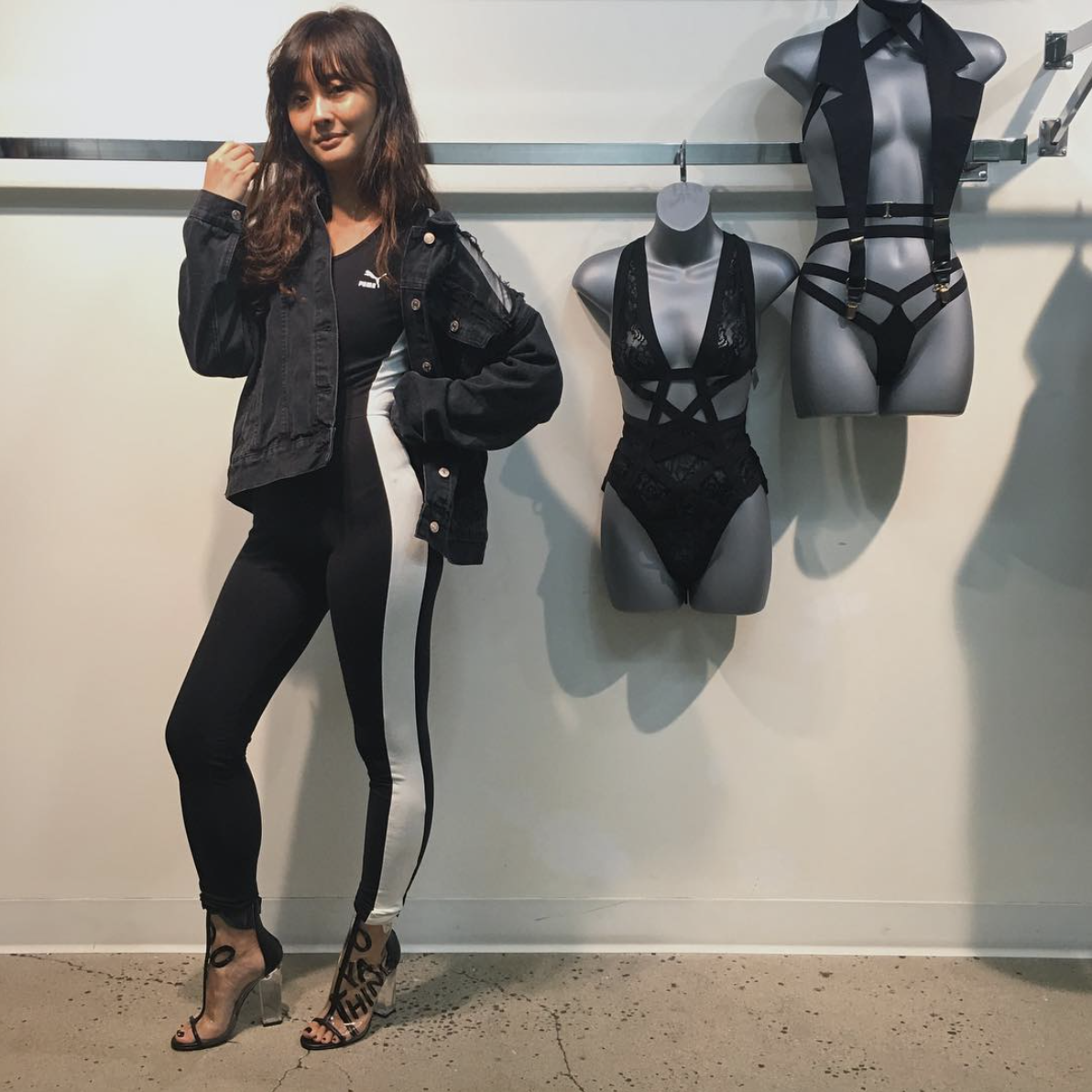Connie Wang
I had the pleasure of getting to know Connie Wang during a stint working as an editorial intern at Refinery29 intern in 2010, back in the days when fashion blogs and websites were still establishing their role in an industry that had been historically dominated by glossy print magazines. Throughout my internship, I was consistently amazed by Connie’s supernatural ability to churn out endless news stories and trend pieces, infusing the incessant deluge of internet content she put forth with her intelligence, humor, and cultural insight. Since the days that I spent working beside her, I have watched Connie’s meteoric rise from a young web editor to a bonafide industry icon, paving the way for a new age of fashion journalism that values greater substance and cultural awareness over style.
Connie’s whip-smart writing and genuine interest in the relationship between people and their clothing has led her to become one of the most interesting fashion industry leaders to have emerged from the blogging explosion of the mid-aughts. From “examining fashion’s love affair with dystopian jumpsuits” to “the perils of using fashion for protest,” Connie continues to prove that fashion journalism can provide a critical perspective while remaining relatable and entertaining. Her unique talent for unpacking the importance of fashion in everyday life has recently led her to become the host of Style Out There, Refinery29’s latest video series, which looks at subcultures around the world through an insightful lens that feels akin to fashion studies.
For this industry profile, I had the chance to pick Connie’s endlessly-creative brain to learn how she sees the roles of fashion editors evolving, why certain cornerstones of the industry (like fashion week) seem anachronistic today, and how she remains intellectually stimulated by her work. (Did I mention that she’s also ridiculously cool?)
You seem to have worn a lot of hats during your long tenure working at Refinery29. Can you describe how you started and the ways that your role and primary duties have evolved since then?
My first business card said: “Associate Blog Editor.” I was a blogger! Blogging meant stumbling across news that already existed in the world — either already published on other blogs, contained within press releases in my inbox, and spread between products and personalities already in public — and setting it in context in a way that was entertaining. It was lots of fun, and taught me to write with joy, personality, and skepticism. There were the occasional interviews, profiles, and essays I’d write, but I started the job because I loved blogging. Writing eight quick stories a day was my idea of a good time.
But by 2012 or so, the industry had changed. Blogging was replaced by content creation, which — in a sympathetic way — means giving your audience exactly what it wants. You prove it with metrics and numbers, keywords and insights, and you’re rewarded by giant leaps in traffic. Content creation was satisfying because it was like a big puzzle: Given certain parameters (time, access, resources), assumptions (readers like celebrity! they like leggings!), and information (the best time to publish is at 8pm on Sundays), how can you create the optimum story? But after a while, being good at hacking that puzzle didn’t feel thrilling anymore. I didn’t want to give readers what they already knew they wanted. I wanted to provide them with something they needed.
I moved into a features-writing position in the beginning of 2017. The pieces I write are long, oftentimes complicated, and based on original reporting and news gathering. Now, the impetus for me writing anything is not about “will someone read this?” — rather, it’s “why is it essential that it exists?” I try not to put anything out in the world that already exists in one form, or is just noise. I really enjoy critically wrestling with fashion and clothing. It’s a topic that we all engage in, but rarely scrutinize. It’s also the perfect bait — Hey! Read this thing about cool clothes — to talk about more inaccessible issues like race, class, and politics.
How would you describe the difference between attending fashion shows when you first started working as an editor and today? Obviously, you’re getting more access than ever before, but can you speak more to how the overall experience of attending fashion shows has changed over the past decade?
Maybe because there are so many more ways to cover Fashion Week, and so many more outlets and platforms to publish Fashion Week stories, I am second-guessing my role within Fashion Week. It happens so frequently, and big innovations happen so infrequently — and since I am not a critic (at least in the “this collection is good to buy” way), reporting on Fashion Week can feel like Groundhog’s Day. It's the same stories each season. Now when I attend, I'm usually reporting on one feature, and attending various parts of Fashion Week to create a more nuanced, more comprehensive story (for instance, what accounts for the huge rise in young Chinese fashion designers?). I haven't totally worked it out yet, but going to Fashion Week now is less about experiencing designers’ visions up close, but more about understanding the relationship between the fashion industry and its perceived consumers. My role is more cultural.
What role do you think print editors and publications have in today’s fashion media landscape? In other words, how can they differentiate themselves from online media, or do you think that the two must combine?
I think that print editors and publications have the benefit of institutionalized excellence — there has been a tradition of editing, fact checking, rewriting, and demanding an economy of language. Digital media is wonderful because of its limitless nature, but I think we could all use more editors. Everyone needs an editor. I know I definitely need an editor!
Instagram can obviously have an enormous and positive impact on the careers of almost anyone who works in fashion, allowing people to connect and be discovered in ways that were never possible before. Is the influence of Instagram a purely positive democratizing force? Or has it given rise to new issues and problems in the industry?
Instagram is visual and so is fashion — in that way, it’s the perfect platform to see, share, and synthesize aesthetic ideas. What it’s not that good at is fostering conversations about what those ideas mean. Especially with the 24-hour lifespans of Instagram Stories, actual discussions can become really superficial and fleeting. It frustrates me when I see sexual harassment and racism talked about solely exist in the form of regrams, screenshots, and photos with an angry emoji face on them. Instagram is so good at spreading awareness and eliciting quick emotions. It is less good at taking the next step.
Those of us who understand what happens behind the scenes in fashion can get a little jaded or disenchanted. (I certainly have seen many of my peers burn out and move on to other industries after a few years!) How do you maintain a positive perspective when you now know a bit too much about "how the sausage is made"?
I believe that optimism means seeing the opportunities within the reality. It doesn’t mean trying to ignore or unsee the problems that already exist. Otherwise, you’re operating in a world where fashion is pure fantasy, and not a real force with economic, social, and environmental consequences. It’s why some magazines have fallen out of touch with their readers.
Positivity comes from being creatively and intellectually excited about the ideas expressed with wearing, making, and producing clothing. Positivity should never come from validation that you are stylish, important, or celebrated — which is a really easy trap to fall in in this world. If you’re always chasing that party invite, front row seat, or Instagram follower number, you’re going to always feel like there’s something missing.




